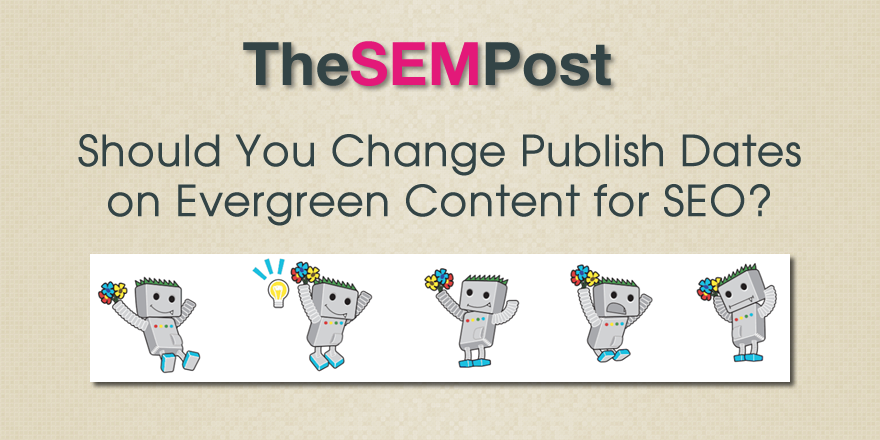
Does the date of publish on the page affect google rankings? What is the ideal practice to be followed in case of old posts with evergreen posts should the dates be removed or updated to a more recent one
The response by Aaseesh Marina from Google, one of the hosts of the English/Hindi office hours:
It can be affected if it’s relevant to the query. If someone is searching, and using the search tools and searching for a certain article on mobile phones between April 2005 and March 2007 or something, then we’ll probably take into consideration the date of publish on the page or the date that you’ve provided because it’s relevant to the query.
But otherwise I don’t see any other ranking issue.
But usually, content that is evergreen isn’t necessarily one of the topics that the date is much of a concern. And if it is a concern, you might be better with writing a fresh new article entirely, focusing on what is new or changed. For example, a page on treatment for a specific type of cancer wouldn’t be considered evergreen because it would be out of date fairly quickly. But an article on cooking substitutions or knitting tutorials would remain evergreen whether it was written yesterday or five years ago. So the context of the type of article it is would be important.
From a CTR perspective, then things might be a bit different from an SEOs perspective, but then it would mostly depend on whether Google is showing the date directly in the search results or not. But Google tends to show dates on searches where the freshness might be more relevant, or when the result is very recent, but tends to omit the dates on older content. For many queries, especially ones where dates wouldn’t be relevant to the query, tend to have only 1-2 results on the page with dates, while the remainder are listed without any dates.
If you do update content, what some people are doing is leaving the original publish date since some CMS systems don’t handle updated dates well depending on your URL structure. But some are adding a notation of “Updated on ___” to those articles so visitors can see at a glance how up to date the information is, even if they aren’t actively thinking about it.
Jennifer Slegg
Latest posts by Jennifer Slegg (see all)
- 2022 Update for Google Quality Rater Guidelines – Big YMYL Updates - August 1, 2022
- Google Quality Rater Guidelines: The Low Quality 2021 Update - October 19, 2021
- Rethinking Affiliate Sites With Google’s Product Review Update - April 23, 2021
- New Google Quality Rater Guidelines, Update Adds Emphasis on Needs Met - October 16, 2020
- Google Updates Experiment Statistics for Quality Raters - October 6, 2020
